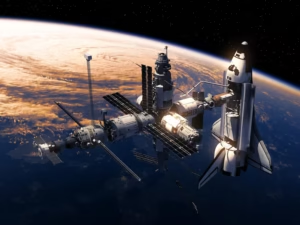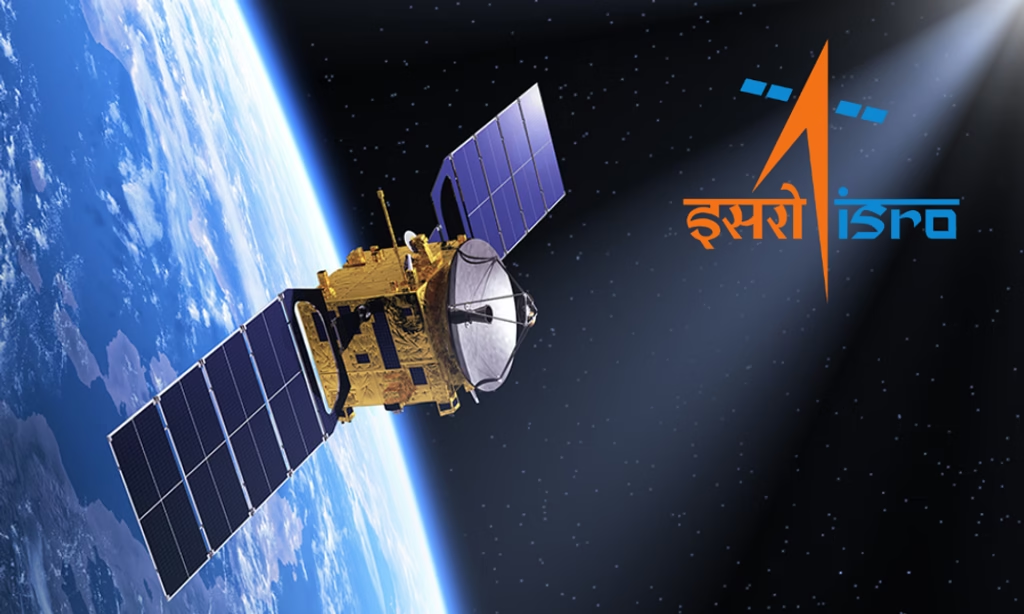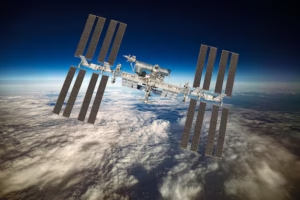The Human Body in Space, Immune System…

Introduction
Have you ever wondered what happens to the human body in space? Space is a very different place from Earth. It has no air, no gravity, and it’s extremely cold or hot. Our bodies are built to live on Earth, so when astronauts go to space, their bodies go through many changes.
In this article, we will explore what happens to the human body in space, the challenges astronauts face, and how they stay healthy while living away from Earth.
1. What Is Space Like?
Before we talk about the human body, let’s understand what space is like.
- No gravity: There is very little gravity in space, especially in orbit around Earth. This is called “microgravity” or “zero gravity.”
- No air: Space is a vacuum. There’s no oxygen, so you can’t breathe without a spacesuit or special equipment.
- Extreme temperatures: Space can be extremely hot when you’re in the sun and freezing cold when you’re in the shadow.
- Radiation: The sun gives off radiation. Earth’s atmosphere protects us, but in space, astronauts are exposed to more radiation.
2. The Effect of Microgravity on the Body
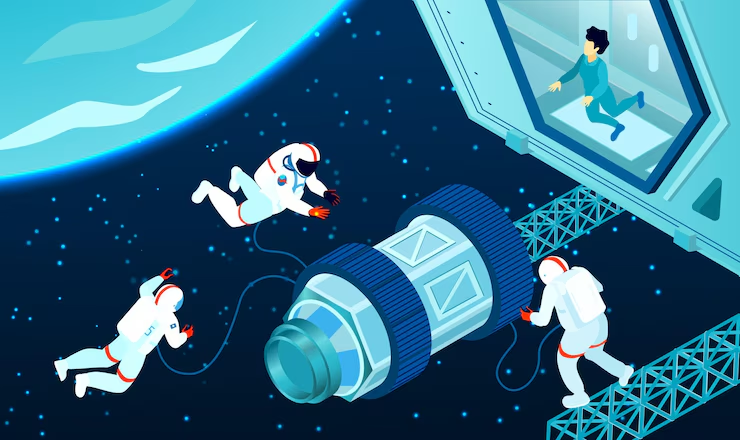
In space, astronauts float because of microgravity. But this also causes some problems for the body.
A. Muscles and Bones
On Earth, our muscles and bones work against gravity to help us stand and move. In space:
- Muscles become weaker: Without gravity, muscles don’t work as hard, so they shrink and weaken.
- Bones become thinner: Astronauts can lose bone density, especially in the hips, legs, and spine.
To fight this, astronauts do exercise for about two hours every day using special machines like treadmills and resistance bands.
B. Fluids in the Body
On Earth, gravity pulls fluids (like blood) down to your legs. In space:
- Fluids move upward: This makes astronauts’ faces look puffy and their legs thinner.
- Nasal congestion: Many astronauts feel like they have a stuffy nose.
This fluid shift can also affect the eyes, causing blurry vision for some astronauts.
3. The Circulatory System
The heart is a very important organ that pumps blood. In space:
- The heart works less: Without gravity, it doesn’t have to pump as hard.
- It may shrink: Over time, the heart may become smaller and weaker.
Also, when astronauts return to Earth, their bodies may have trouble regulating blood pressure, which can make them feel dizzy or faint.
4. The Immune System
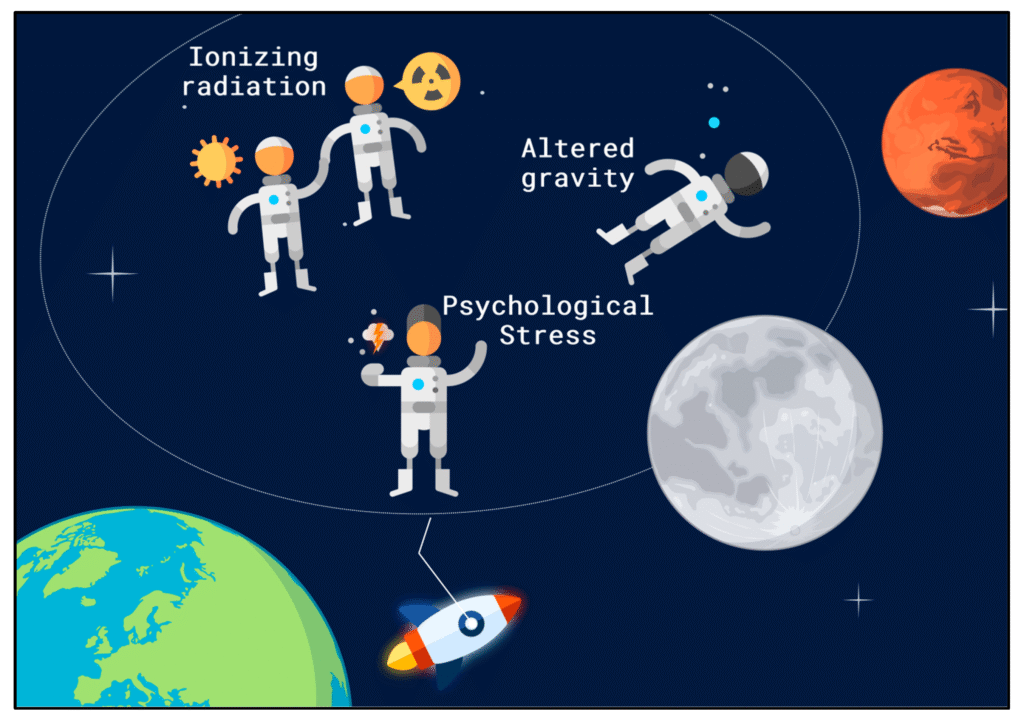
The immune system helps protect us from getting sick. In space:
- It gets weaker: Stress, radiation, and other factors can make the immune system less effective.
- Viruses can reactivate: Some viruses like chickenpox or cold sores can wake up again in space.
Astronauts take extra care to stay clean and healthy, and they get vaccinated before going to space.
5. The Brain and Mental Health
Astronauts live in small spaces for weeks or months. They are away from family and normal life. This can affect the brain and mental health.
A. Stress and Sleep
- Stress: Living in space can be stressful due to isolation and busy schedules.
- Sleep problems: The lack of natural day-night cycles can confuse the body clock, causing sleep trouble.
NASA studies these issues and provides astronauts with support like mental health check-ins, communication with family, and relaxation activities.
B. Space Sickness
Just like car or sea sickness, astronauts can get space motion sickness during the first few days. Symptoms include:
- Nausea
- Dizziness
- Headaches
This usually gets better after a few days as the body adjusts.
6. The Eyes and Vision
Many astronauts report changes in their vision during or after space missions. This is called Spaceflight-Associated Neuro-ocular Syndrome (SANS).
Why Does This Happen?
- The fluid shift in the body causes pressure to build up inside the skull.
- This pressure may change the shape of the eyeball or press on the optic nerve.
Doctors are still studying this, but it’s a concern for longer space missions, like a trip to Mars.
7. The Skin and Wounds
- Skin becomes dry: The air inside spacecraft is dry, which can dry out the skin.
- Wounds heal slower: In microgravity, cuts and wounds may take longer to heal.
Astronauts carry first-aid kits and take special care of their skin.
8. Food and Digestion
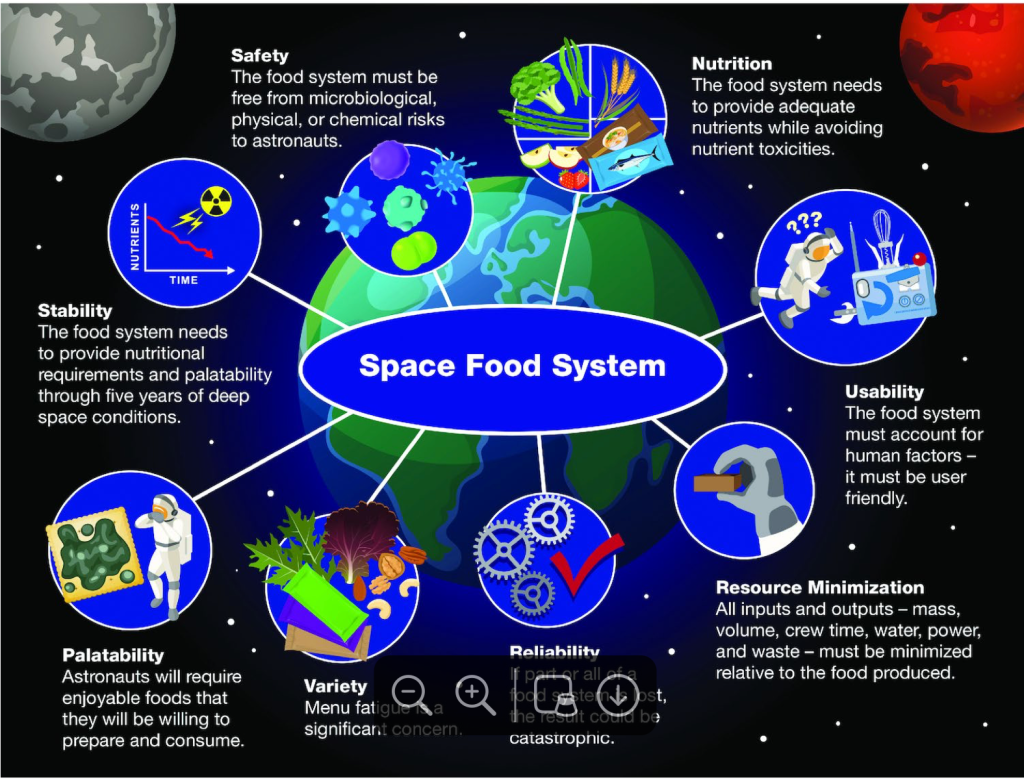
Eating in space is very different!
A. Food
- Astronauts eat special space food that is lightweight and doesn’t spoil quickly.
- They need a balanced diet with enough calories, protein, vitamins, and minerals.
B. Digestion
Even though there’s no gravity, the digestive system still works. Muscles in the stomach and intestines move food along just like on Earth.
9. Breathing and Air Pressure
Astronauts need oxygen to breathe, just like on Earth.
- Spaceships and suits have oxygen systems.
- Air pressure is controlled inside the spacecraft to make it safe to breathe.
If the air pressure drops too low, it can cause hypoxia (not enough oxygen), which is very dangerous.
10. Going Outside the Spacecraft – Spacewalks

When astronauts go outside the spacecraft (called a spacewalk), they wear a spacesuit that:
- Provides oxygen
- Controls temperature
- Protects from radiation and tiny space debris
A spacewalk is very hard on the body. It takes hours and uses a lot of energy.
11. Radiation Exposure
In space, there is more radiation from the sun and cosmic rays.
- Too much radiation can damage cells and DNA, increasing the risk of cancer.
- Earth’s magnetic field and atmosphere protect us on the surface, but astronauts don’t have the same protection.
To reduce risk, spacecraft are built with radiation shielding, and NASA keeps track of how much radiation each astronaut receives.
12. Returning to Earth
When astronauts return to Earth, they need time to re-adjust to gravity.
- They may feel weak, dizzy, or tired.
- Their muscles and bones may need to get stronger again.
- Some may have balance problems.
They go through rehabilitation (special exercises and therapy) to recover.
13. Long-Term Missions (Like Mars)
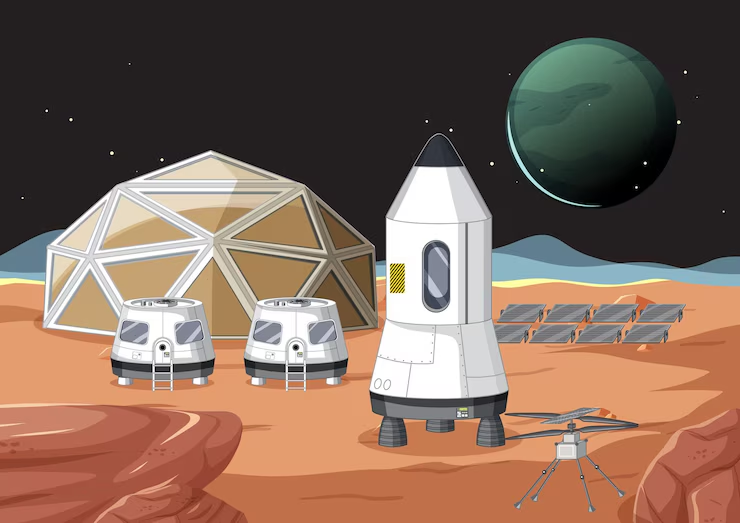
NASA and other space agencies are planning missions to Mars, which could take up to 3 years. This brings more challenges:
- Longer exposure to radiation
- More muscle and bone loss
- Mental health risks from isolation
Scientists are testing ways to keep astronauts safe and healthy for these long missions.
Conclusion
Space is an amazing and dangerous place. The human body is not made for space, but with the help of science and technology, astronauts can live and work there safely.
Understanding how space affects the body helps us prepare for future missions to the Moon, Mars, and beyond. It also teaches us more about how our bodies work here on Earth.
One day, you might grow up to be an astronaut too! Just remember, staying healthy in space takes hard work, strong teamwork, and a lot of science.
https://www.bbc.com/future/article/20230927-what-a-long-term-mission-in-space-does-to-the-human-body
